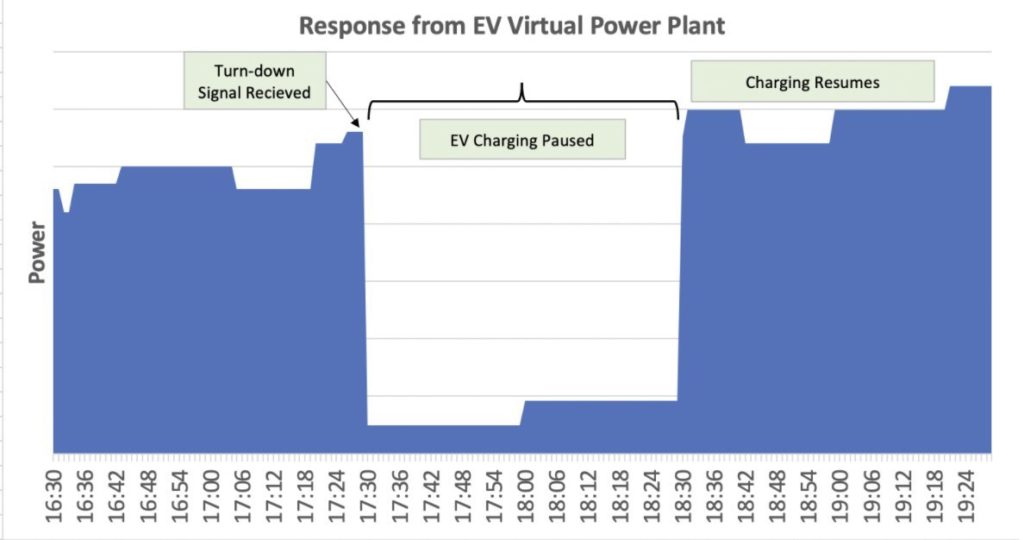Electric-vehicle virtual power plant scales up in UK with funding
15 February 2022

The UK’s first electrically-chargeable vehicle (EV) virtual power plant (VPP), run by ev.energy, has been awarded an additional £295,000 (€352,000) in funding, taking its total finance pot to £754,000. Provided by Innovate UK, the money will be used to scale the VPP, which will help stabilise the country’s power grid as electromobility accelerates.
Energy Savings Trust predicts there will be up to 11 million EVs on UK roads by 2030. Keeping their batteries boosted will require a large and stable power supply, which means ensuring the grid can manage the increased workload. This is where smart-charging, such as ev.energy’s virtual system, will come into play. The platform is capable of reducing the amount of electricity needed to charge EVs during peak times, lessening the impact on the grid, as well as the environment.
‘Localised systems to balance electricity demand, storage and supply are likely to play a vital role in helping the UK get to net-zero,’ said Damien Kelly, innovation lead at Innovate UK. ‘Innovative services using EVs to provide flexibility to the grid have great potential and we look forward to supporting the scale-up and wider demonstration of ev.energy’s maximising grid-services project.’
Power priority
The funding bump from Innovate UK came after the software platform demonstrated a commercial shift in energy consumption from the grid using only battery-electric vehicles (BEVs). In December 2021, the distribution network for London, the south east and the east of England, UK Power Networks (UKPN), issued its first instructions for ev.energy to reduce electricity demand.
The VPP automatically paused charging in Norfolk and Essex where the grid was experiencing congestion. Between 5pm and 6.30pm, power consumption from the vehicles was reduced by 90% compared with the unmanaged baseline. Putting BEV charging on hiatus means greater stability at peak times, and that energy supply can return to them later on when demand has dropped.

‘While these localised virtual power plants are currently small in scale, they demonstrate the significant potential that can be unlocked from smart-charging as the number of EVs increases,’ said Sotiris Georgiopoulos, head of smart-grid development at UK power networks. ‘By using apps like ev.energy, smart-charging can make EVs part of the solution for a clean, reliable and affordable electricity grid that benefits everyone.’
BEV owners can also look to benefit financially from helping balance demands on the grid. Those signed up to ev.energy smart-charging algorithm can earn retail points worth up to £60 (€71) a year in retail vouchers. Alternatively, they can choose to offset their charging carbon emissions. The company already manages EV battery boosting for over 35,000 drivers across the UK, Europe, Australia and US.
‘This is a significant milestone for domestic flexibility that builds on the ‘shift’ innovation project and winning our first commercial tender with UKPN back in 2020,’ said William Goldsmith, ev.energy’s head of grid services. ‘UKPN has always been great to work with, and we hope to share our technology with the support of Innovate UK’s funding to support other utilities, charger manufacturers, and the wider industry in the UK and around the world.’